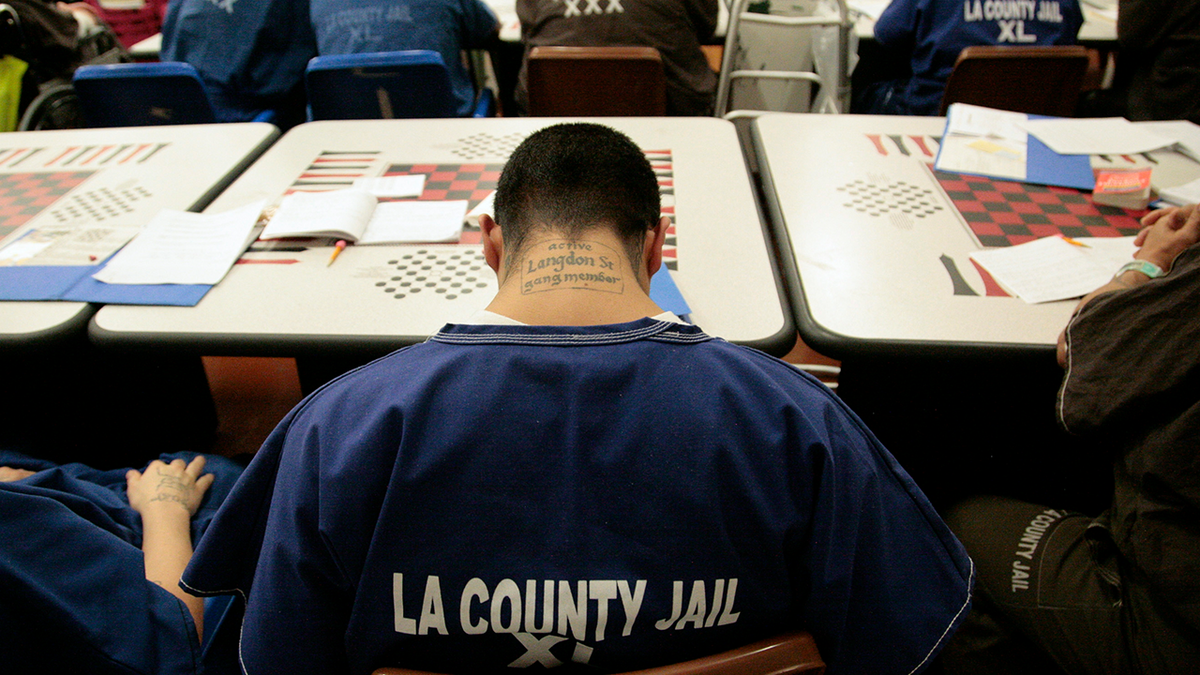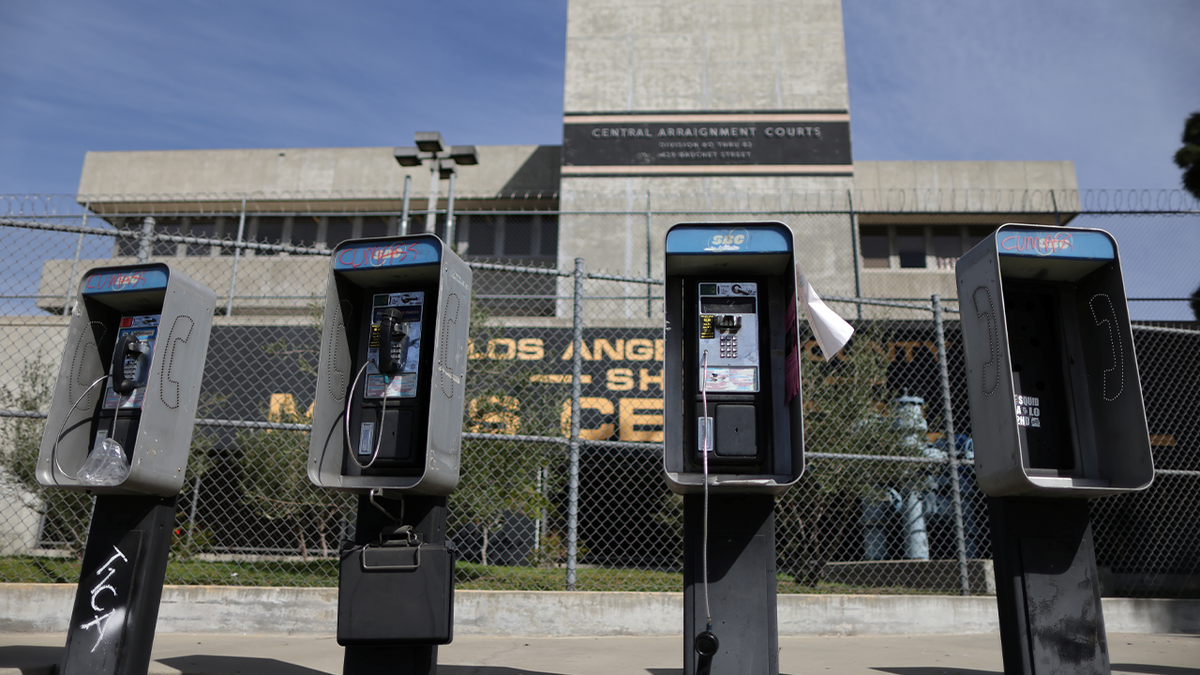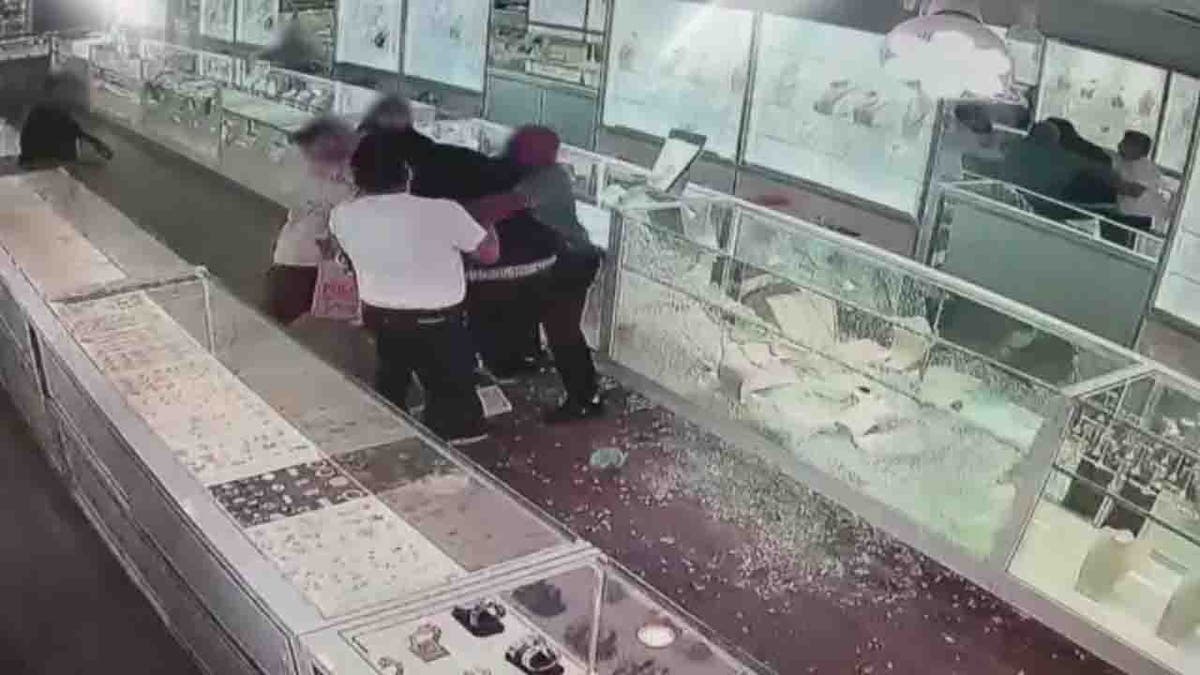Los Angeles 'significantly more unsafe' after unarmed security ambassadors replace deputies: Kevin Dalton
West Hollywood resident Kevin Dalton weighs in on the state of crime and policing after Los Angeles implemented its 'security ambassador' program, replacing some deputies with unarmed security.
New zero-dollar bail guidelines soon to take effect in Los Angeles County will allow suspected offenders to be released for a range of crimes, including some types of theft, assaults and vandalism, among other offenses.
The new bail schedule was approved by the Superior Court of Los Angeles County, and will apply to defendants arrested for non-violent felonies and misdemeanors. All police departments and the Los Angeles County Sheriff's Department must comply.
Zero cash bail, also known as no-cash bail or zero-dollar bail, refers to people arrested and charged with a crime and then released from custody without having to pay any bail money upfront.
"We've been down this road. Zero bail during the pandemic contributed to a 15-year high in crime," Los Angeles County prosecutor, John McKinney, said in a statement to Fox News Digital. "I support policies that keep people safe. This will do the opposite."

Inmates at the Men's Central Jail in Los Angeles, Calif. New zero-bail rules for Los Angeles County go into effect Oct. 1. (Reuters/Jason Redmond/File)
The new policy dictates three actions by law enforcement.
In lieu of assigning money bail, those arrested will either be cited and released by officers at the scene or booked and released, where suspects will be taken to a police station and released on their own recognizance and given a citation for a future court date.
In certain cases, an on-call magistrate will determine the release terms and conditions for anyone arrested for certain crimes that pose a risk to the public.
Crimes that qualify for a citation or booking and release include assault, assaulting a member of the armed forces, battery on a school employee, vandalism of $400 or more and petty theft with a prior conviction.
"Right now bail is not a perfect system, but it really is the only system we have to deal with these types of crimes," Los Angeles County Deputy District Attorney Eric Siddall told Fox News Digital. "This is an invitation to continue to commit more crimes."

Los Angeles County Men's Jail (Reuters/Lucy Nicholson/File)
CALIFORNIA VIOLENT CRIME TRIPLED AS SUSPECTS WALKED FREE WITHOUT BAIL: REFORM STUDY
The new rules come as Los Angeles County faces an uptick in brazen smash-and-grab crimes impacting retailers and criticism of so-called so-on-crime policies many blame for the region's crime woes.
Civil rights groups said the new rules are a step in the right direction and bring the pre-arraignment court system in line with what social science studies have concluded, Jeffrey Stein, deputy director of litigation for the Civil Rights Corps, told Fox News Digital.
"It's not good policy. It doesn't keep people safe. It's expensive, and we know that it obviously affects people who cannot afford to pay a fine to get out of jail," Stein said of cash bail. "We are heartened by the changes, but we also need to bear in mind that this is just one small segment of a larger system."
The move by the courts comes amid calls to reform the criminal justice system, which critics say puts non-violent offenders, low-income individuals and people of color at a disadvantage.
LOS ANGELES PARENTS SHOT, KILLED WHILE PARKED IN CAR WITH 1-YEAR-OLD CHILD IN BACKSEAT
Supporters of tougher policies cite the brazen nature of some criminals, who they contend are not being prosecuted to the fullest extent and sometimes re-offend more violently.
Upon taking office in 2020, Los Angeles County District Attorney George Gascon issued a directive eliminating cash bail for all non-violent defendants. By 2022, he reversed course amid pressure from the public and even his own prosecutors who said the policy effectively created a revolving door for re-offenders.
"It appears that we are more concerned about individuals who are committing crimes than we are about the people being victimized."
A judge reinstated the zero-bail policy in May after a class action lawsuit was filed by arrestees who couldn't afford to pay bail and had to remain in custody for a few extra days.
Scott Fairfield, of the Los Angeles County Police Chief's Association, told Fox News Digital that in some cases, defendants released on zero bail can re-offend and rack up more charges and victims before they are arrested again.
"It appears that we are more concerned about individuals who are committing crimes than we are about the people being victimized," he said.
Fox News Digital has reached out to the Los Angeles County District Attorney's Office and other civil rights groups about the bail schedule.

The owners of Meza's Jewelry in El Monte, Calif., fight back against a would-be smash-and-grab thief. (Meza’s Jewelry)
The latest crime trend in the region is the surge in mobs of thieves ransacking retail stores for sometimes hundreds of thousands of dollars of merchandise. Under the new bail rules, anyone arrested for shoplifting items for a total not exceeding $950, a provision under Prop 47, would be booked into a jail and released.
Part of why zero bail has been so vilified by some is because the issue resonates with the public, said Stein.
"You can play the security camera footage of a smash-and-grab robbery, and you can say crime rates are up and people get scared, and pointing a finger at something like zero dollar bail, which has absolutely nothing to do with smash-and-grabs is just great politics," he said. "It's good politics. It's lazy logic. It's not scientifically supported, but it resonates with people and that's why it plays so well in the media and in politics."
Los Angeles County Deputy District Attorney Eric Siddall said there's a mentality with some people within the criminal justice system that theft is a victimless crime, and therefore those crimes aren't aggressively prosecuted.
"They actually do have victims. Not only are the employees traumatized but the companies lose money. Mom-and-pop shops can't afford this type of theft," Siddall said. "Even larger businesses like CVS and Nordstrom eventually exit the marketplace. The consequences are real. They are felt by everyone."
CLICK HERE TO GET THE FOX NEWS APP
Organized retail theft has resulted in more than $100 billion in product losses across the U.S., according to a 2022 National Retail Security Survey. The Los Angeles region and Bay Area ranked as the top two most affected areas by organized retail theft, according to a 2022 survey by the NRF.
In response, a task force has been formed to combat retail thefts in and around Los Angeles.
The bail rules go into effect Oct. 1.












































